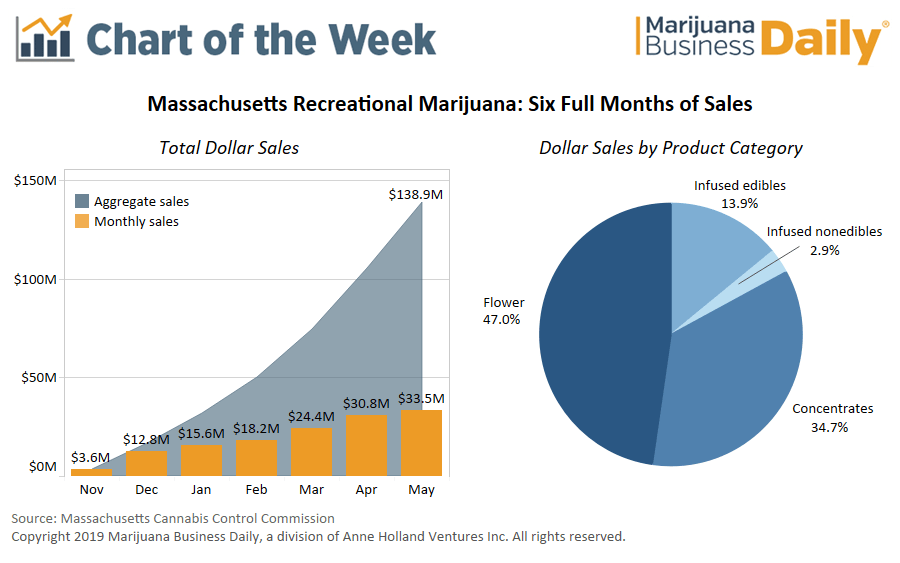An analysis of the current market trends and future predictions for the cannabis industry in Massachusetts.
The cannabis industry in Massachusetts has experienced rapid growth and significant changes since the legalization of adult-use cannabis in 2016. As the market continues to evolve, it’s crucial for business owners, investors, and consumers to stay informed about emerging trends and future predictions. In this blog, we’ll explore the current market landscape and provide insights into what the future holds for cannabis retail in Massachusetts.
Current Market Trends
1. Increasing Number of Dispensaries
Since the first adult-use dispensaries opened in 2018, the number of licensed cannabis retailers in Massachusetts has steadily increased. As of 2023, there are over 200 licensed dispensaries operating across the state, with more applications in the pipeline. This growth has led to increased competition, pushing dispensaries to differentiate themselves through unique product offerings, exceptional customer service, and innovative marketing strategies.
2. Diversification of Product Offerings
The Massachusetts cannabis market has seen a significant diversification of product offerings. While flower remains a popular choice, consumers are increasingly gravitating towards edibles, concentrates, tinctures, and topicals. This trend is driven by consumers seeking new and varied ways to consume cannabis, as well as a growing interest in health and wellness products that offer alternative delivery methods.
3. Emphasis on Sustainability
Sustainability has become a key focus for many cannabis businesses in Massachusetts. Consumers are increasingly concerned about the environmental impact of cannabis cultivation and production. In response, dispensaries and cultivators are adopting sustainable practices, such as using organic growing methods, reducing energy consumption, and minimizing waste. Businesses that prioritize sustainability are likely to attract environmentally conscious consumers and gain a competitive edge.
4. Rise of Social Equity Programs
The Massachusetts Cannabis Control Commission has implemented social equity programs aimed at promoting diversity and inclusion within the industry. These programs provide support and resources to individuals from communities disproportionately impacted by cannabis prohibition. As a result, we’re seeing more minority-owned and women-owned cannabis businesses entering the market. This trend is expected to continue as the state strives to create a more equitable and inclusive industry.
Future Predictions
1. Expansion of Delivery Services
Cannabis delivery services are gaining traction in Massachusetts, providing consumers with a convenient and discreet way to purchase products. As technology advances and regulations become more favorable, we can expect the delivery market to expand. Dispensaries that invest in robust delivery infrastructure and user-friendly online platforms will be well-positioned to capitalize on this growing segment.
2. Increased Focus on Wellness and CBD Products
The wellness market is expected to play a significant role in the future of cannabis retail. Consumers are becoming more health-conscious and are seeking products that promote overall well-being. CBD, known for its non-psychoactive therapeutic benefits, is likely to continue gaining popularity. Dispensaries that offer a wide range of CBD and wellness-focused products will cater to this demand and attract a broader customer base.
3. Advancements in Cannabis Technology
Technology will continue to drive innovation in the cannabis industry. From cultivation techniques to point-of-sale systems, advancements in technology will streamline operations and enhance the consumer experience. For example, automated cultivation systems can optimize growing conditions, while advanced data analytics can provide insights into consumer preferences and purchasing behaviors. Staying abreast of technological advancements will be crucial for dispensaries looking to stay competitive.
4. Evolving Regulatory Landscape
The regulatory landscape for cannabis in Massachusetts is likely to continue evolving. As the industry matures, we can expect to see updates to existing regulations and the introduction of new policies aimed at addressing emerging challenges and opportunities. It’s essential for cannabis businesses to stay informed about regulatory changes and adapt their operations accordingly to remain compliant and mitigate risks.
5. Growth of Cannabis Tourism
Massachusetts, with its rich history and vibrant culture, is well-positioned to become a hub for cannabis tourism. As more states legalize cannabis and the stigma surrounding its use diminishes, we can expect an influx of tourists seeking cannabis-related experiences. Dispensaries that offer unique experiences, such as guided tours, cannabis-infused dining, and educational workshops, will attract tourists and boost local economies.
Conclusion
The future of cannabis retail in Massachusetts looks promising, with numerous opportunities for growth and innovation. By staying informed about market trends and anticipating future developments, cannabis businesses can position themselves for success in this dynamic industry. Whether it’s embracing sustainability, leveraging technology, or focusing on wellness, the key to thriving in the Massachusetts cannabis market lies in adaptability and a commitment to meeting the evolving needs of consumers.
For personalized guidance and detailed SOP templates tailored to your business needs, [CONTACT US] to learn how we can help you navigate the complexities of the Massachusetts cannabis industry.


